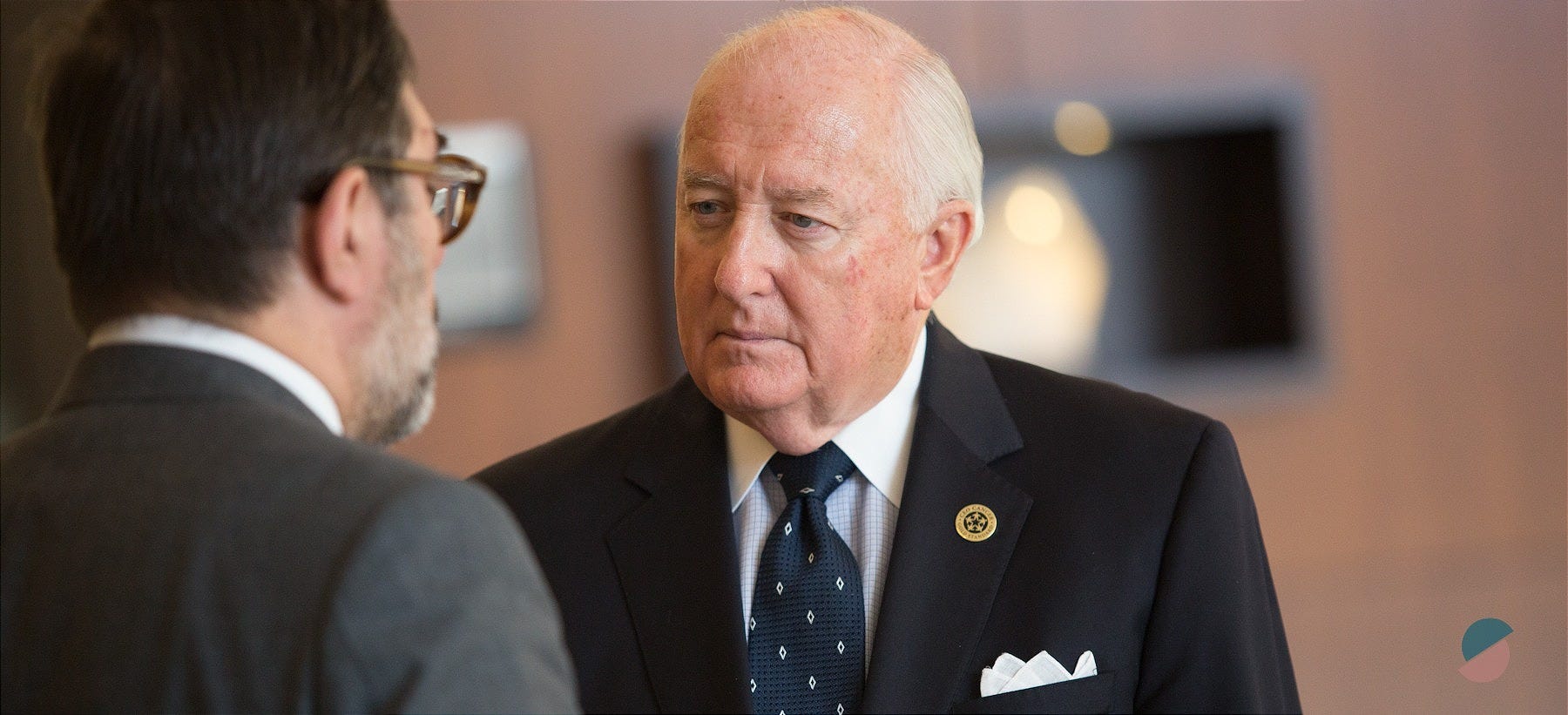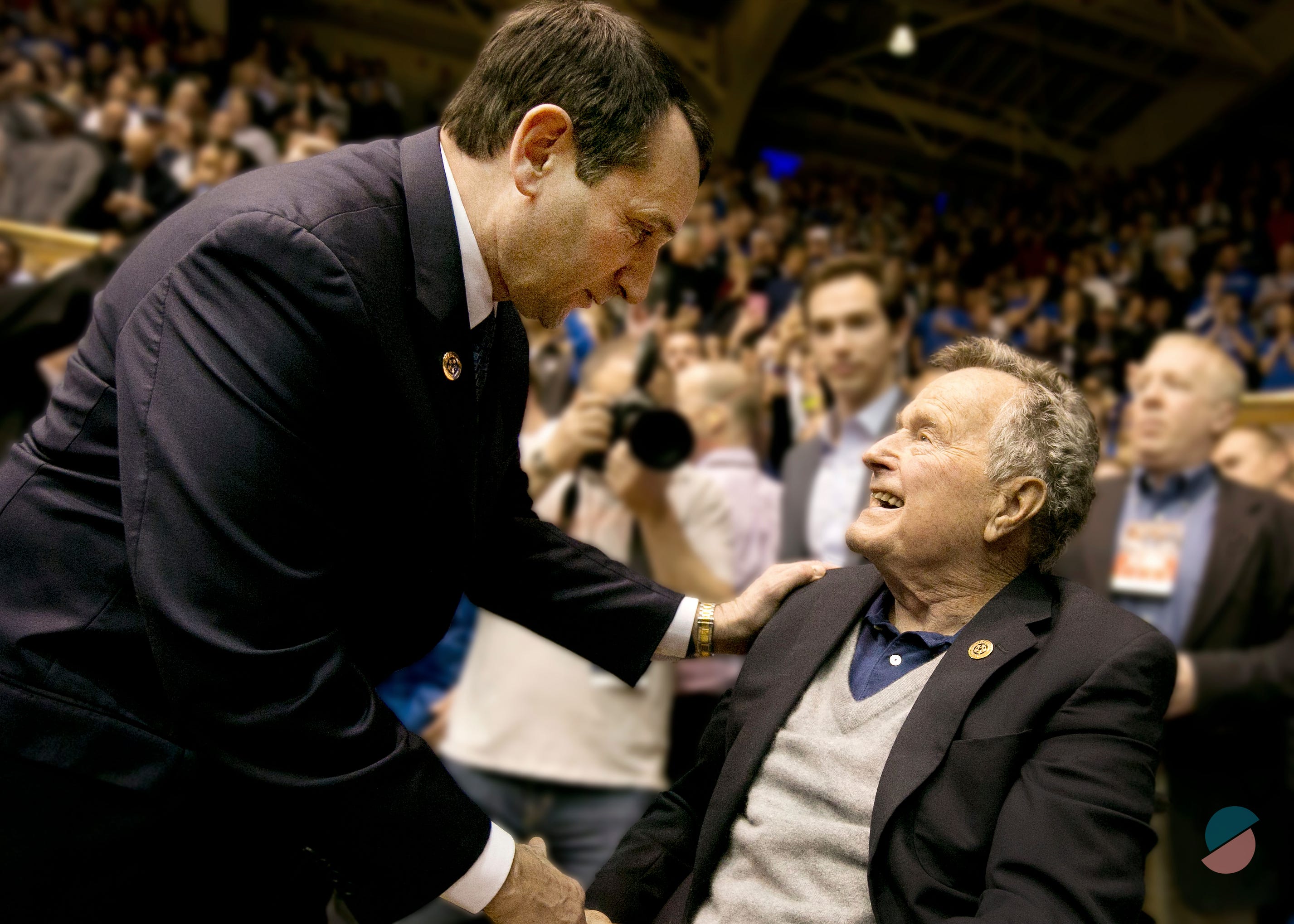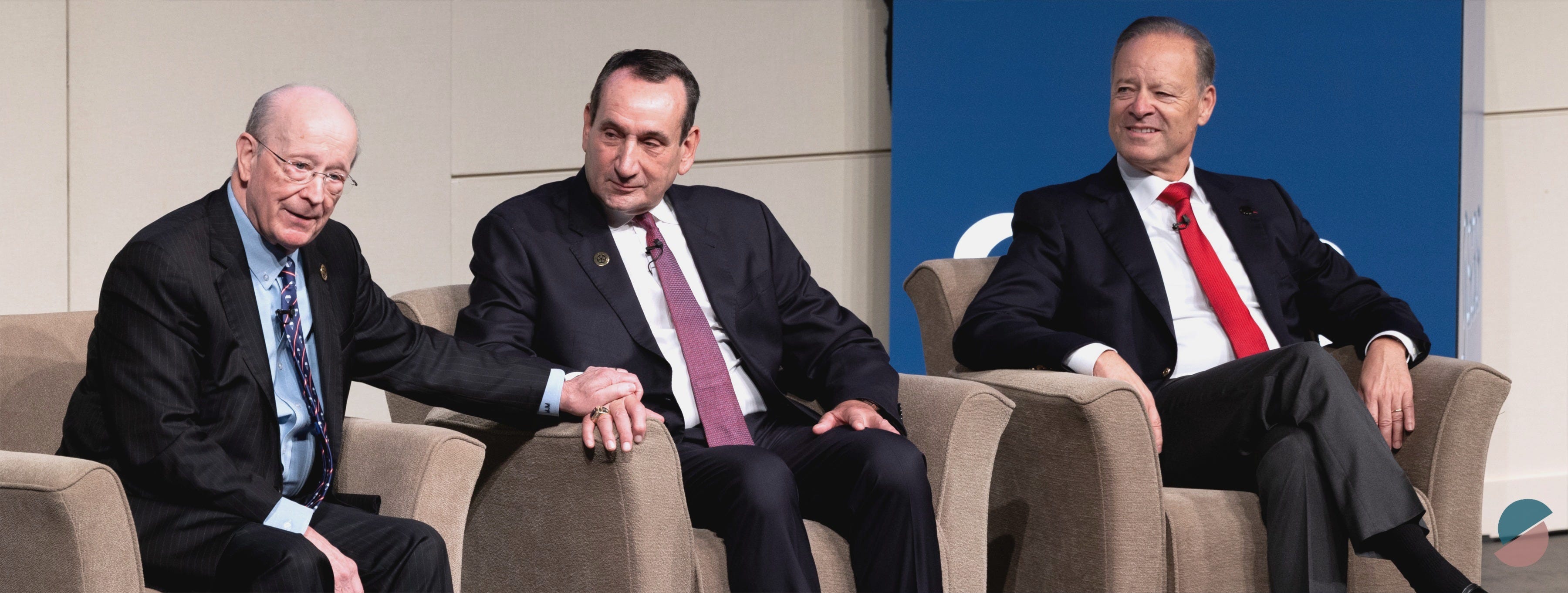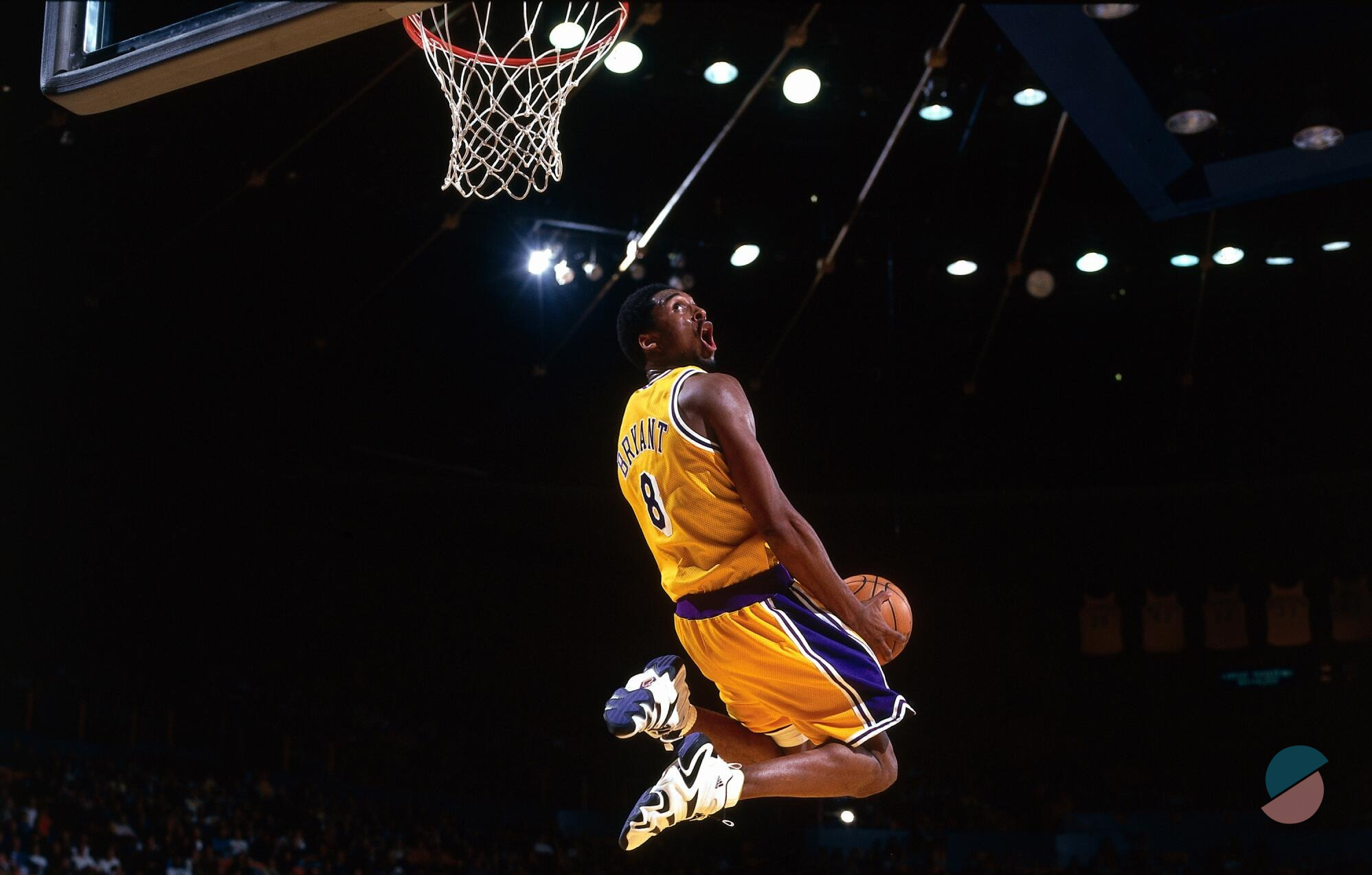You Can’t Win Alone
On Leadership, Purpose, And Collective Intelligence In Biomedical Innovation
I’ve been thinking about something Mike Krzyzewski (Coach K) said recently.
He told the story of his first night coaching the U.S. Olympic basketball team—Kobe Bryant, LeBron James, the most gifted players in the world gathered in one room. Instead of outlining plays, he gave them a single, unexpected assignment:
“When you go back to your suites tonight, put on your USA uniforms and be sixteen again—for one minute.”
Later that night at the Wynn Las Vegas, Kobe tapped on his shoulder.
“Coach, I did what you asked,” he said.
“What happened?”
“I cried.”
It’s a simple story, but it captures something essential about leadership. People commit when they reconnect with the why—the purpose that first moved them to act—not just the what they’ve been told to do.
That same clarity of purpose is what built the CEO Roundtable on Cancer (CEORT), where I’ve had the privilege of serving as the CEO for about 2 years.
In 1998, President George H. W. Bush looked at the fragmented landscape of cancer research and saw “towers of excellence”—academic centers, biopharma companies, and advocacy groups—operating in silos. “What we have,” he said, “isn’t dialogue. It’s a collision of monologues.” His solution was to bring together the CEOs of these sectors, not to compete but to collaborate.
He appointed Bob Ingram , then CEO of GlaxoWellcome, as founding chairman and paired him with Dr. Martin (Marty) Murphy, a scientist and systems builder who became the Roundtable’s first CEO. Bush’s charge to them was characteristically direct: Be bold and venturesome. Cancer was intolerable; do something about it.
From the beginning, the Roundtable was an experiment in collective leadership.
Bob Ingram invited his friend Coach K to join the founding circle. Bob believed that the coach who had built one of the most cohesive teams in sports could teach CEOs something about aligning strong egos around a shared goal. Coach K accepted—and wore the Roundtable’s lapel pin to every game he coached. He forgot it only once. The next morning, President Bush called Marty Murphy from Houston. “Marty,” he said, “what did you do wrong?”
That attention to detail was anchored in the expectation that if you were part of this mission, you represented it—publicly and consistently.
Years later, when someone proposed bringing President Bush to a Duke game, the idea seemed impossible. His Parkinson’s had advanced; he rarely left home. But when asked, he said, “No, you’re not crazy. I’m giddy as a schoolboy.” With help from Dr. Jim Goodnight, co-founder of SAS and CEORT board member, a jet was arranged from Houston to Durham. When President Bush’s wheelchair entered Cameron Indoor Stadium, the crowd erupted: “U-S-A 41! U-S-A 41!” After the game, Coach K brought him into the locker room and saluted his former commander-in-chief. It was a moment that reflected CEORT’s DNA—commitment meeting commitment.
That same ethos defines our work today.
Chris Viehbacher, now CEO of Biogen and CEORT board member, was one of the original architects of Project Data Sphere, the Roundtable’s data-science and AI subsidiary created to dismantle the same silos President Bush identified decades ago. Chris has a sharp taxonomy: ninety percent of people complain; ten percent do something; one percent mobilize others. Mobilizing others is the hard part—and the essential one.
At Project Data Sphere, mobilization takes the form of shared data environments where competitors collaborate safely on pre-competitive challenges; of AI systems that quantify tumor response more precisely than legacy methods; of frameworks that connect innovation to access. It’s how we turn purpose into structure.
Coach K once told me that when he coached the U.S. team, he didn’t ask players to leave their egos at the door. He asked them to bring them inside—then align them under a single banner. “You’re in it to win,” he said. “And it doesn’t make sense that you win alone.”
That philosophy inspired something new: Precision Signals, CEORT’s signature video podcast series .
Precision Signals is a platform for substantive dialogue across disciplines—a continuation of the Roundtable’s founding premise that progress happens when silos dissolve. It’s where I have the privilege of speaking with the people and ideas transforming biomedical research and healthcare: scientists, clinicians, technologists, investors, government officials, and policymakers whose work embodies the same spirit of bold collaboration .
Each conversation explores how insight becomes evidence, how evidence becomes policy, and how innovation becomes access. In a recent episode, I spoke with Dr. James Gulley, Co-Director of the Center for Immuno-Oncology at the National Cancer Institute, about the evolving frontier of cancer immunotherapy and the role of intelligence—both human and artificial—in shaping its future. It’s precisely the kind of exchange we aim to surface: where bold ideas meet strategic action.
“You can’t win alone” is an organizing principle . It’s what connects a locker-room lesson in Las Vegas to a national experiment in collective leadership, and now to a global dialogue about the future of science and healthcare.
To follow these conversations and the people driving them, subscribe to Precision Signals—and join us as we keep tracing the signal beneath the noise.






